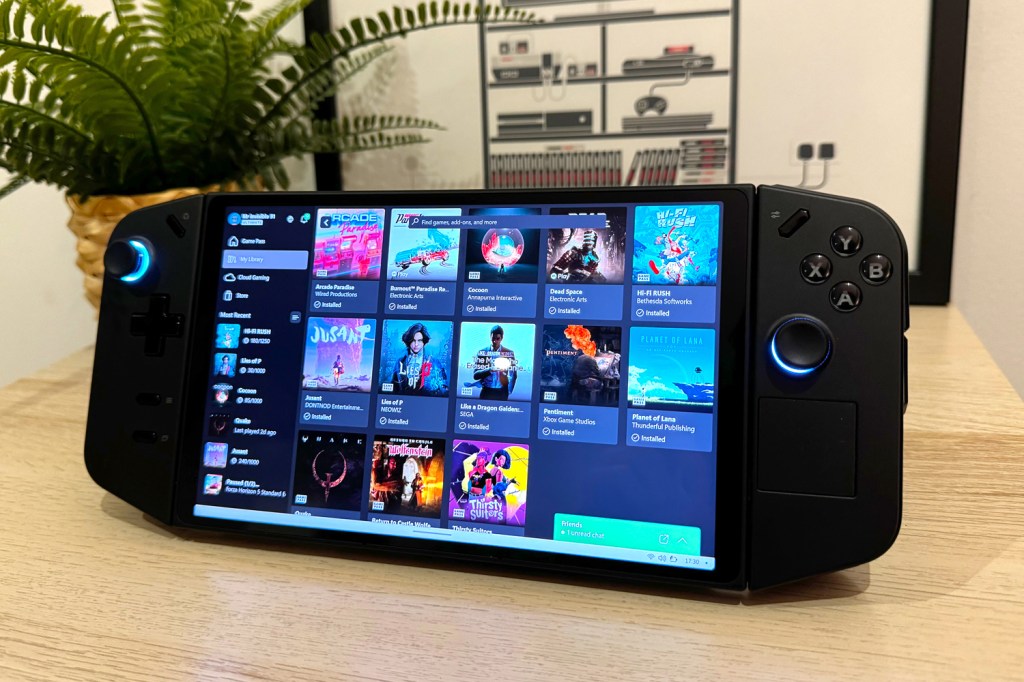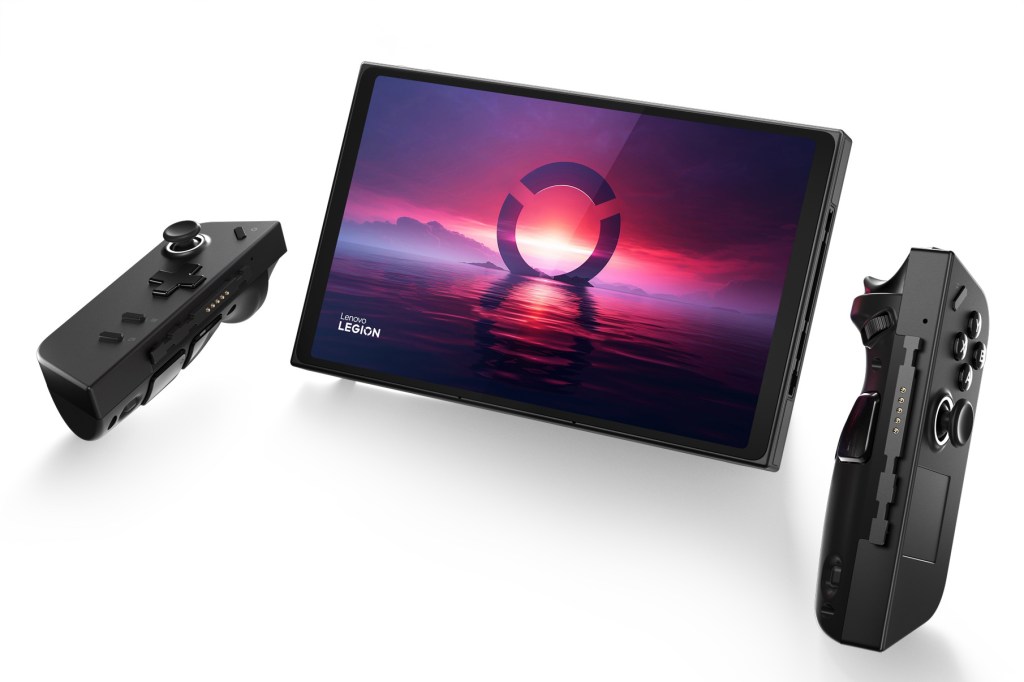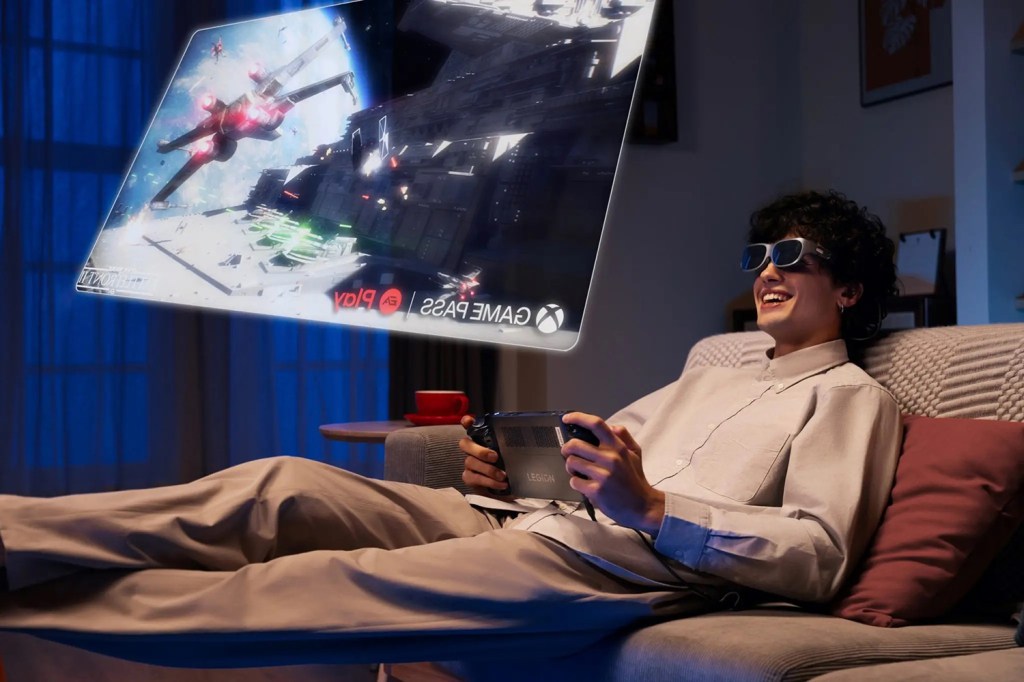Lenovo talks Legion Go’s development and whether a follow-up is in the works
We talk big screens, FPS mode and the future of gaming with Lenovo Gaming VP Volker Düring

PC gaming is going through a portable renaissance right now, thanks entirely to hot new handhelds such as the Steam Deck and Asus ROG Ally. When you can play new releases just about anywhere, suddenly static games consoles aren’t quite as cool. Now Lenovo is joining the party with the Legion Go.
We sat down for a UK exclusive interview with Volker Düring, VP for Lenovo’s gaming division, and someone who’s been heavily involved with the development of the Legion Go from the start, to find out why big screens and innovative control schemes will set the Legion Go apart – and also his vision for the future of portable gaming.
This product is as much for console players as it is the traditional PC crowd.
For me the key is to give the gamers the solution and what they want, and what they want is to have their games that they can play on any device, wherever they acquired them. I want to give them a solution to make it possible to play all their games on a handheld device where maybe they couldn’t before. Before it was technically difficult to get PC performance on a handheld device, and this is what’s changing now. We have the processors able to provide the performance.
This is a really competitive space to be be making products in.
If there’s a cake I think everyone will always want a slice. I think the challenge is that right now nobody knows how big the cake is.

A huge amount of thought went into the design of the Legion Go.
We did hundreds of drawings and a lot of iterations, working on the location of different buttons and triggers. The FPS mode was something we discussed a lot. It couldn’t just be a gimmick and it had to work, so we did a lot of designs and testing around it. The design was born of us wanting to be able to do the first-person shooter mode, not because we wanted to be able to remove the controllers to mimic the Switch.
We think third-party support can make the Legion Go even better.
I think there is so much creativity around these controllers, especially from the community, and I’d be really happy to engage with third-parties to see what we can do to generate additional experiences. Right now the mouse control only works for right-handed use, and obviously there are a lot of left-handers out there. Second, it’s pretty big, so maybe in the future we could do something for children. We would always want players to get the full benefit of our innovation.

We wanted to give gamers the most immersive experience.
One difference you’ll notice with our design compared to competition is that our bezels are super slim. If you look at competition models they are much thicker, and we really wanted to make sure ours were as small as possible. Secondly, knowing a lot of people will use Windows on it, if you go lower than 8.8 [inches] the Windows interface will become too small to offer a good user experience.
The Legion Go was designed to be accessible, but with the customisability that PC gamers expect.
We tried to get an interface which is relatively easy to manage when it comes to content. We want you to be able to bring your whole gaming catalogue, as well as streaming and cloud options together in an easy way. At the same time we want to provide for the more versatile gamers to really manage things in the way they want. We want you to be able to just start playing, but equally we want you to be able to go into your manageability settings and adjust them in the way you want.
Cloud gaming is growing.
I think that hardcore gamers will still have issues with latency, but in the casual market where this isn’t as much of a consideration I think it’s more appealing. We anticipate that at home this device might be shared so it’s not only for the AAA gamer, but maybe also a child or a partner who wants to play less demanding games, and we want the device to be ready for all scenarios.

The Lenovo Legion Glasses are the perfect accessory for the Legion Go.
You don’t need the Legion Glasses with the Legion Go but it gives you additional comfort. Say you’re lying on the couch or in bed you can just lay the screen down and use the controllers while you play. It also gives you additional privacy as people can’t see what you’re watching or playing. And finally, the battery life is going to improve a lot when you’re able to switch off the screen.
The Legion Go offers more freedom than rival products.
The detachable controllers, navigating through Windows, the kickstand: it all adds up to a device that just gives you a lot more flexibility that you might not even use, but in my opinion having it is a benefit.
Handheld PC gaming is only going to get bigger.
We see a strong demand from the gamers in this category which gives me confidence that it will continue to grow. For it to really explode we will need consumers with lower budgets to be able to come in, but I’m extremely positive that gamers want the additional flexibility and mobility, and this is why I expect it to keep growing.
There is no Legion Go 2 in development right now.
What we do right now is collect all the feedback, positive and negative, because we know there’s huge room for improvement. So we will collect all this and eventually we could put it into a Legion Go 2. A Legion Go 2 is of course in our heads, but there are no concrete plans.
